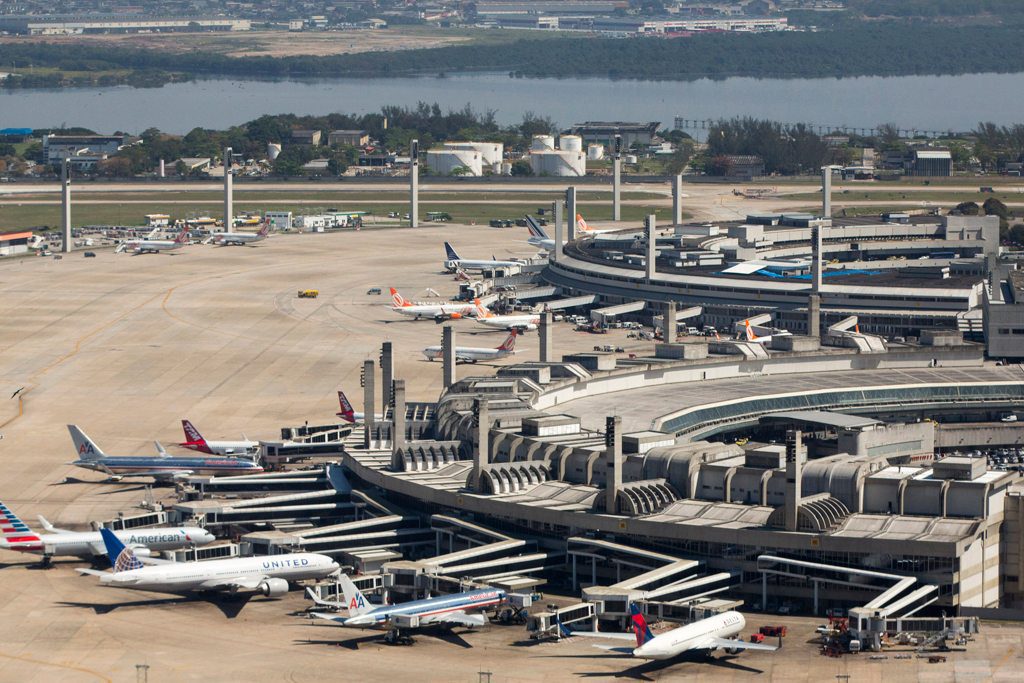Skift Take
Skyscanner had been sniffing around Brazil's homegrown metasearch leader Mundi and checking its books. Kayak appears to have swooped in to shore up market share.
Kayak has acquired the assets, including the domain and user information and the mobile apps, of the Brazilian metasearch company Mundi.
Kayak will maintain the Mundi brand but is porting it over to its own technology stack.
Mundi, based in Rio de Janeiro, will join Kayak’s portfolio alongside recently acquired metasearch brands Momondo and Cheapflights.
Kayak chief executive Steve Hafner tells Skift that the overlap of users of Mundi, Kayak, and Momondo is less than 20 percent.
The alignment of Kayak and Mundi comes as a surprise in that Mundi had previously been working with Kayak’s rival Skyscanner, owned by Chinese travel giant Ctrip, to power international flights on a white-label basis.
Hafner confirms that that arrangement has stopped and Kayak is powering Mundi’s platform.
Kayak was able to buy Mundi’s assets directly without parent company Priceline Group being involved, Hafner says.
Given that detail, the acquisition price wasn’t likely steep, but Kayak wouldn’t reveal the price paid.
Mundi had about 20 employees and hadn’t hired for new positions this year, and may have lost about a third of its engineers in the past year, according to a former employee.
Kayak is not taking the executive team or the employees on as it has not bought the company, just some of its assets.
Hafner says, “We did the deal because we have a big business in Brazil. Mundi was one of the early entrants and it’s great to bring those users under the Kayak umbrella.”
Why keep the Mundi name if an objective of Kayak is presumably to make Kayak a global brand name?
Hafner says, “Because Mundi has a distinct market positioning. We’ve proven in the past that once loyal users start using a brand you have to give them a good reason to switch. For example, we brought on Checkfelix in Austria and Swoodoo in Germany in the past and have kept those brands though they run on Kayak’s global platform. Now these Mundi users will have a better experience with the brand because of our technology on the back-end.”
Support from Kayak should be able to stabilize the brand, which faces competition from smaller players like Voopter, which received a $600,000 Series B round at the start of this year, and Google Flights, which recently introduced a Portuguese version.
Mundi is a major homegrown travel metasearch player in Brazil by most measures and claims to have more than 1 million regular users, according to Kayak’s data. However local competitor Voopter says that local online travel agencies and airlines get more transaction volume from it instead of Mundi. Voopter also says it has more than 1 million regular users to desktop and 1.6 million regular users if you add mobile app traffic.
Mundi was majority owned by three founding investors and the Mosaic investment group, formed in 2009 in concert with Globo Groupo, the media group which is an arm of Brazil’s largest TV broadcaster. In 2013, the Group bought out Globo’s shares in Mundi.
Three entrepreneurs created Mundi in 2008. They had previously built two successful companies — an Internet service provider and an e-commmerce price-comparison site that they sold on to Naspers/MIH.
Mundi grew quickly in its early years, rising partly on a Brazilian economic boom. But since 2012 it has cycled through CEOs as it has attempted to grow sustainably without taking on debt.
Mundi has struggled because Brazil’s hotel market is fragmented, without the chain dominance that is more common in North America and that makes it more efficient to bring on large numbers of properties by signing one-off deals. As a result, it has had to do the equivalent of door-to-door sales to sign up properties.
Hotel search matters because the commissions are higher with hotels than with airfare. To lure hotels, small B&Bs and beachside pensions, Mundi has had to provide more than just the offer of a link on a site but actually help provide technical and marketing education to property owners, former company executives say.
Brazil is suffering from the worst recession in its history, according to the Financial Times. Travel entrepreneurs have had to go up against a buzzsaw of shrinking domestic leisure and business travel demand due to uncertainty.
Brazil has also faced flat to declining inbound tourism — except for the Summer Olympics bump last year — due to TV media hype about violence in Rio.
Both hiccups to travel demand have hurt Mundi’s ability to grow. But the long-term prospects for growth in Brazil are huge, according to studies from eMarketer. Hence Kayak’s interest.
International players like Kayak and Skyscanner have been slow to break into the Portuguese-speaking Brazilian market, though Booking.com has shown the most traction. Brazilians are, to generalize, patriotic and like local brands when they have an option.
One risk Kayak faces in having lost Mundi’s staff is that Mundi was particularly good at social media outreach in the local vernacular. If Kayak aims to continue to drive Mundi’s social media marketing at the same level or better, it may need to consider hiring local expertise.
While parent company Priceline Group has invested in Latin America before with its brief flirtation with Hotel Urbano, this deal is its first Kayak acquisition of the assets of a Latin American company. That said, Momondo, its recent acquisition, has a Brazilian website and localized mobile apps, too.
The Daily Newsletter
Our daily coverage of the global travel industry. Written by editors and analysts from across Skift’s brands.
Have a confidential tip for Skift? Get in touch
Tags: brazil, kayak, priceline, skyscanner
Photo credit: An aerial shot of Galeao international airport in Rio de Janeiro, Brazil. Rio-based Mundi was the largest homegrown travel metasearch player in Brazil. It has been acquired by Kayak. Associated Press
